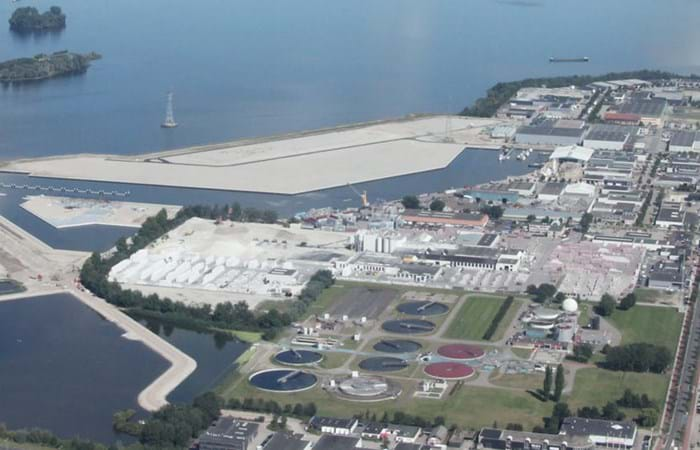Boskalis Nederland is involved in one of the largest redevelopment projects in the Netherlands. The Harderwijk Waterfront project involves the complete transformation of the lakeside area of this IJsselmeer town. The project covers a strip approximately six kilometers long, combining homes, work and recreation in a natural way. The Harderwijk Waterfront will generate a quality boost in many areas: quality of life, employment, traffic, tourism and the environment.
Design
Commercial activities and industry will be moved outside the town, creating openings for residential facilities, shopping and recreation close to and on the water. Harderwijk's leading attraction, the Dolfinarium, will remain easily accessible and acquire two underground car parks. The current car park, which is located between the old town centre and the lakeside, will be replaced by a stylish promenade leading to a new residential area, De Eilanden, which will include 1,600 homes close to or on the lake. Building work on the residences will start in the third quarter of 2013.
Contracting consortium
During the project, the municipal authorities are collaborating closely with the provincial authority of Gelderland and the private parties in a consortium consisting of Synchroon, Koopmans TBI Bouw, and Boskalis. Boskalis is responsible for the earthworks and the infrastructure. TBI will manage the construction of the residential properties and other buildings.
The Boskalis role
The town will acquire a sandy beach again on the lakeside, which will be open to the public. Boskalis will be responsible for the 'Beach Island'. The current marina will then be moved, and a tourist harbor and a port for the old fishing fleet will be built. Acting for vof Waterfront, Boskalis Nederland will execute all the civil-engineering and underground infrastructure work for the project. We will primarily be deploying dry earthmoving equipment. The work began in the first quarter of 2012 and it will take at least six years.
